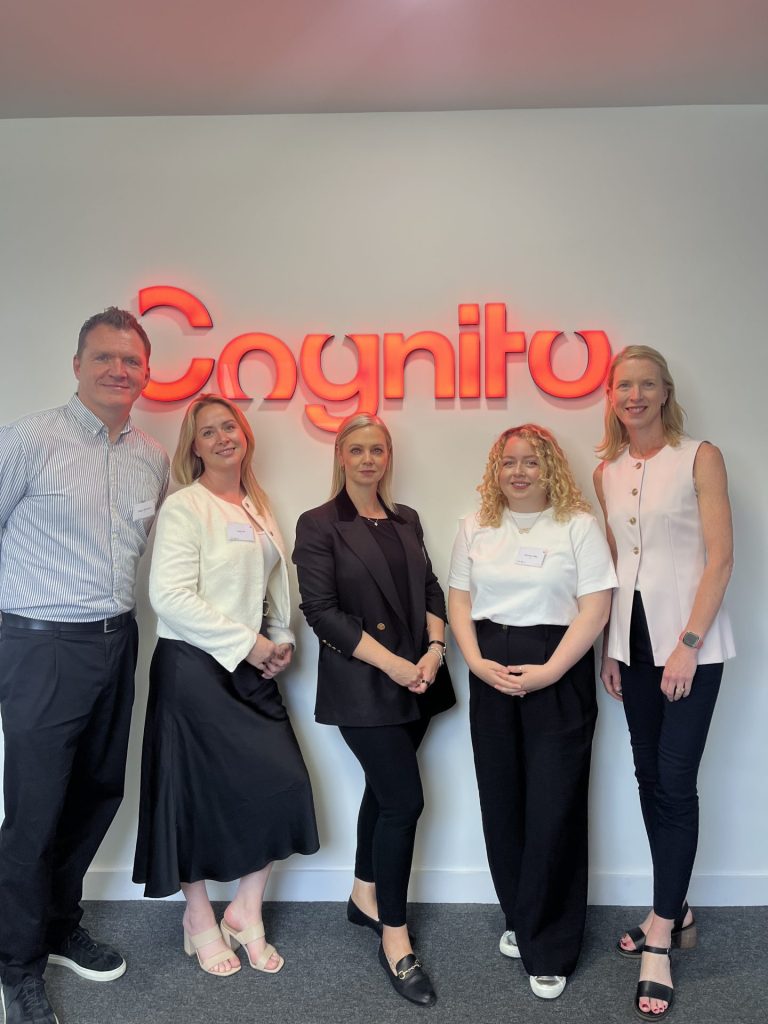
Biden withdraws from the US presidential race, Kamala Harris steps into the running, France sees a newly elected National Assembly, King Charles sets out the new Labour government’s priorities in the UK…and that’s all just the month of July in global politics.
It’s a time of global political transition and subsequent policy changes in many areas, including climate transition.
There are a new and evolving set of challenges and opportunities for climate solutions, required levels of climate investment, and transition finance as we see a reshuffling of the political landscape.
As communicators, our focus extends beyond policy shifts to how organizations should effectively communicate these changes.
We covered all this in detail at our latest roundtable event this week, which focused on recent policy developments out of the UK and Europe.
We had three fantastic speakers: Simon Gentry, Senior Public Policy Advisor, Eliette Riera, Head of UK & Switzerland Policy, UN Principles for Responsible Investment and Katie Hile, External Communications Lead, UK and Middle East, ING – all giving their views on the state of play in climate policy and what is expected in the months and years to come.
Here we summarize some of the key takeaways for communicators from our event.
Bridge the gap between public and policy
We are seeing a rising tide of populism globally. People vote for populist parties when they feel disenfranchised or dissatisfied with current leadership.
To buy into policies and leadership, people need to see and feel positive change in their lives.
There needs to be an experienced value exchange of the economic benefits, felt by real people.
When it comes to the climate transition, this is not always easy. Particularly in the Western world, the problems feel far away, and the solutions even farther.
But global decarbonisation can deliver huge, tangible benefits. And they aren’t communicated, understood or felt by citizens.
There is a fundamental role for communicators to play in conveying the benefits, contextualizing the numbers and getting climate policy buy-in from the public and industry.
Make education a priority
The most damaging thing you can do is tell the wrong story when it comes to climate transition.
Stalling on climate policy will cost people – yet we don’t hear this message. Instead, we hear that sustainability is ‘expensive’. That’s not the whole story.
£6 billion – that is the cost to drivers of the decision to push back the ban on the sale of new petrol and diesel cars.
Greening transport is not only a priority to achieve net zero and reduce costs – but also key to addressing poor air quality, the largest environmental risk to public health in the UK. The economic cost from the impacts of air pollution in the UK could reach £18.6 billion by 2035.
Communicators have a responsibility to tell the real story and bridge disenfranchisement
Listen to each other
Listening is a basic function of communicating. It sounds basic, but it’s not happening properly.
Business, government and consumers need to listen to each other and ask what they are each trying to achieve and what they want.
This is not an issue anyone is facing in isolation – we are all facing it together.
A challenge for government and business is to be more consumer-centric in communications.
You are far more likely to get buy-in from multiple stakeholder groups if you listen to the challenges and concerns they face, and develop transition strategies around these communication learnings.
Harking back to that old adage – it’s not what you say but how you say it.
Engage stakeholders early
Not enough is being done to engage stakeholders proactively – from consumers, to investors, to industry, and up to policy makers – on issues and policy areas that are often polarizing.
Find the right format, and engage early.
The hard issues need to be tackled – and the journey around engagements needs to be communicated.
Approach the transition holistically
Currently, climate policy is treated as a separate entity. Sustainability…and then everything else.
This means that when other geopolitical issues are thrust to the forefront, ESG becomes a dot on the horizon far too quickly.
It really is time to rethink the narrative and break down the silos. Everything is intersectional – climate policy cannot be separate from housing, education, or healthcare.
For example, take the cost of living crisis. The UK has the oldest building stock in Europe, and the least energy efficient housing in Western Europe. A study last year showed that providing homes with better insulation to help low-income households cut energy costs could be one of the solutions to this issue. Building more greener homes with better insulation could cut household costs, contribute to emissions reduction, and there would be more homes to meet rising societal needs.
Whilst in reality, it is far more complex than that, we need policy and spending strategies that consider all issues holistically.
And communications can help tell a story of interconnectedness to the public and policy makers.
Incentivize investment
There is still not enough money to finance climate mitigation and adaptation. That’s hardly a new challenge.
But it is vital to liberate and deploy the capital we need to fund the climate transition.
In the UK, new initiatives like GB Energy and the National Wealth Fund will help scale up sustainable investment. But the funding gap is still significant.
Communications must tell the story of a stable and enabling environment for finance, where companies and investors can process the risks and opportunities, against a backdrop of supportive public policy.
This is critical to shoring up investor confidence and incentivising investment.
Keep Trying
Before Covid-19, no one would have believed we could have successfully locked down cities and pivoted to fully remote working within days. It wasn’t easy, but it happened.
This is the approach we need to take with the climate transition. As one of our speakers said during the discussion “it’s impossible until it isn’t”.
The message here is to keep trying, keep taking action, and advocate for change. Communication has a huge role to play in conveying the challenge but also the solutions.
If you would like to hear more, or join our next event, contact [email protected]
We can help your organization with communicating in a complex ESG landscape, be it around policy change or climate disclosures. Our team is deeply connected and on-the ground in markets across Europe, APAC and the U.S. We collaborate with advocacy organizations, investors, capital markets businesses, regulators, and nonprofits that are directly involved in climate disclosures.
Holly Edwards is an account director in London focused on sustainability






